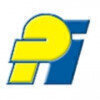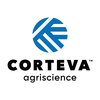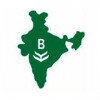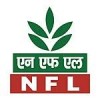Filter interviews by
Astec LifeSciences Interview Questions and Answers
15 Interview questions
Designing a distillation column involves determining the number of trays, column diameter, reflux ratio, and feed location.
Consider the desired separation efficiency and product purity
Calculate the number of theoretical trays needed using McCabe-Thiele method
Select appropriate column diameter based on vapor and liquid flow rates
Determine the reflux ratio to achieve desired separation
Decide on the feed location for...
LMTD is calculated using the formula (ΔT1 - ΔT2) / ln(ΔT1 / ΔT2)
Calculate the temperature differences between the hot and cold fluids at the inlet and outlet of the heat exchanger
Subtract the temperature difference of the cold fluid from the temperature difference of the hot fluid
Take the natural logarithm of the ratio of the two temperature differences
Divide the difference in temperature by the natural logarithm ...
A permit system is a formal process for granting permission to perform a specific task or activity.
Permit systems are commonly used in industries such as construction, mining, and manufacturing to ensure safety and compliance with regulations.
Permits may be required for activities such as hot work, confined space entry, or working at heights.
The permit system typically involves a written document outlining the wor...
Cooling tower TR calculation involves determining the amount of heat that can be removed by the cooling tower.
Determine the flow rate of water through the cooling tower
Measure the temperature of the water entering and leaving the cooling tower
Calculate the difference in temperature between the water entering and leaving the cooling tower
Use the formula TR = (500 x flow rate x delta T) / 12,000 to calculate the coo...
Boiler and thermopac are both heating systems, but differ in their working fluid and application.
Boiler uses water as the working fluid to produce steam, while thermopac uses a heat transfer fluid like oil or gas.
Boilers are commonly used in power plants and industrial processes, while thermopacs are used in industries like textiles, chemicals, and food processing.
Boilers are typically larger and more complex than...
Boiler is used to generate steam while thermopack uses thermal energy to heat a fluid.
Boiler produces high-pressure steam while thermopack heats a fluid at low pressure.
Boiler is used in power plants and industrial processes while thermopack is used in small-scale industries.
Boiler requires more maintenance and has a higher risk of explosion compared to thermopack.
Boiler uses water as a working fluid while thermop...
The maximum possible vacuum is determined by the pressure limit of the vacuum pump and the vapor pressure of the fluid being evacuated.
The maximum vacuum achievable is limited by the pressure limit of the vacuum pump.
The vapor pressure of the fluid being evacuated also limits the maximum vacuum.
Vacuum levels are typically measured in torr or millibar units.
The highest vacuum ever achieved in a laboratory is around...
The previous process involved a manual system for data entry and tracking.
Data was entered manually into spreadsheets
Tracking of progress was done through email communication
There was no automated system for generating reports
The process was time-consuming and prone to errors
Pumps are devices used to move fluids from one place to another. There are different types of pumps based on their working principle.
Centrifugal pumps
Positive displacement pumps
Axial flow pumps
Mixed flow pumps
Jet pumps
The glass thickness of msgl reactor varies depending on the manufacturer and model.
The glass thickness can range from 5mm to 20mm.
It is important to consult the manufacturer's specifications for the specific reactor in question.
Factors such as pressure and temperature can also affect the required glass thickness.
Regular inspections and maintenance should be conducted to ensure the integrity of the glass lining.
Astec LifeSciences Interview Experiences
17 interviews found
(2 Questions)
- Q1. About yourself Maintenance activities
- Q2. Glasslined equipments
(2 Questions)
- Q1. Self Introduction
- Q2. Work profile in previous company
- Ans.
Managed mechanical maintenance activities including equipment inspections, repairs, and preventive maintenance in a manufacturing plant.
Led a team of technicians to ensure all machinery was running efficiently
Performed regular inspections to identify and address potential issues before they caused downtime
Coordinated with production team to schedule maintenance activities during downtime
Implemented new maintenance proc...
(2 Questions)
- Q1. Reason for leaving job
- Ans.
Seeking new challenges and growth opportunities
Desire for career advancement
Looking for a more challenging role
Seeking new learning opportunities
Relocation to a different city
Company downsizing or restructuring
Better work-life balance
- Q2. Salary discussed
I appeared for an interview in Jan 2025.
(2 Questions)
- Q1. Mechanical seal mesuerment
- Q2. Par miter
I applied via Recruitment Consulltant and was interviewed in Apr 2024. There was 1 interview round.
(2 Questions)
- Q1. What is your achievements?
- Ans.
I have successfully led a team to exceed sales targets by 20% for three consecutive quarters.
Led a team to exceed sales targets by 20% for three consecutive quarters
Implemented new sales strategies resulting in increased revenue
Received recognition for outstanding performance from senior management
- Q2. Design distillation column?
- Ans.
Designing a distillation column involves determining the number of trays, column diameter, reflux ratio, and feed location.
Consider the desired separation efficiency and product purity
Calculate the number of theoretical trays needed using McCabe-Thiele method
Select appropriate column diameter based on vapor and liquid flow rates
Determine the reflux ratio to achieve desired separation
Decide on the feed location for opti...
Interview Preparation Tips
(1 Question)
- Q1. Tell me about your self.
Interview Preparation Tips
I applied via Recruitment Consulltant and was interviewed in Jul 2022. There were 3 interview rounds.

(1 Question)
- Q1. Related to experience technical Questions like recruiting for Technical General manager
(1 Question)
- Q1. Technical Interview for production department
Interview Preparation Tips
I applied via Naukri.com and was interviewed in Oct 2021. There were 2 interview rounds.
(2 Questions)
- Q1. Work Experience family background and Educational background
- Q2. Company culture and CTC Discussion
(4 Questions)
- Q1. Ask about Your Daily routine And Job profile and Your Role In organisation
- Q2. How To calculate Cooling Tower TR And Efficiency of Boiler Chilling Plant Compressors types And Capacity.. Anf details explain and Principal
- Ans.
Calculating cooling tower TR, boiler efficiency, and types and capacity of chilling plant compressors.
Cooling tower TR can be calculated using the formula: TR = (500 x GPM x Delta T)/12000
Boiler efficiency can be calculated using the formula: Efficiency = (Output/Input) x 100
Types of compressors include reciprocating, rotary screw, centrifugal, and scroll.
Capacity of compressors is measured in tons of refrigeration (TR...
- Q3. Utility Explain Types oF Boiler Your Chilling plant is capable how to calculate Colour coding in industry Schedule And Preventive Maintenance Explain
- Ans.
Answering questions related to Maintenance Engineer interview.
Types of boilers include fire tube, water tube, and electric boilers.
Chilling plant capacity can be calculated by multiplying the flow rate by the temperature difference.
Colour coding in industry is used to identify pipes, wires, and equipment based on their function or contents.
Schedule maintenance is planned maintenance that is performed at regular interva...
- Q4. Document work GLR types and Thinkness Test Agitator types And calculations And Vaccume calculation
Interview Preparation Tips
Boiler study...
I applied via Walk-in and was interviewed before Mar 2023. There were 2 interview rounds.
(1 Question)
- Q1. All about salary and experience
(1 Question)
- Q1. All about the plant
Electrical Maintenance Engineer Interview Questions & Answers
posted on 23 Sep 2023
I applied via Referral and was interviewed before Sep 2022. There were 3 interview rounds.

(1 Question)
- Q1. Tell me about your self, previous experience, current job role
(1 Question)
- Q1. Current CTC ,and expected CTC,why should we hire you
Interview Preparation Tips
- Transformers
- Motos
- VFD
- Breakers
- Billing
- Chillers
- Boiler
- Compressors
I applied via Recruitment Consulltant and was interviewed before Jun 2022. There were 3 interview rounds.

Basic questions of engineering
(5 Questions)
- Q1. Details about chemicals and process
- Q2. Details of HAZOP study
- Q3. What is permit system
- Ans.
A permit system is a formal process for granting permission to perform a specific task or activity.
Permit systems are commonly used in industries such as construction, mining, and manufacturing to ensure safety and compliance with regulations.
Permits may be required for activities such as hot work, confined space entry, or working at heights.
The permit system typically involves a written document outlining the work to ...
- Q4. How to calculate LMTD
- Ans.
LMTD is calculated using the formula (ΔT1 - ΔT2) / ln(ΔT1 / ΔT2)
Calculate the temperature differences between the hot and cold fluids at the inlet and outlet of the heat exchanger
Subtract the temperature difference of the cold fluid from the temperature difference of the hot fluid
Take the natural logarithm of the ratio of the two temperature differences
Divide the difference in temperature by the natural logarithm value...
- Q5. Calculation of cooling tower
- Ans.
Cooling tower calculation involves determining the heat load, water flow rate, and cooling tower efficiency.
Calculate heat load by determining the difference in temperature between the hot water entering and the cooled water exiting the tower.
Determine water flow rate based on the heat load and the specific heat capacity of water.
Calculate cooling tower efficiency by comparing the actual heat rejected to the maximum po...
Interview Preparation Tips
(1 Question)
- Q1. What is MSGL Reactor, ANFD, Atmospheric Distillation and vaccum Distillation, Herbicide and intermediate Product, Chlorination
- Ans.
MSGL Reactor, ANFD, Atmospheric and Vacuum Distillation, Herbicide and Intermediate Product, Chlorination are all related to chemical production processes.
MSGL Reactor is a type of reactor used in chemical production.
ANFD stands for Agitated Nutsche Filter Dryer, which is used for filtration and drying of chemical products.
Atmospheric Distillation is a process used to separate crude oil into different components based ...
Top trending discussions






Astec LifeSciences Interview FAQs
Some of the top questions asked at the Astec LifeSciences interview -
Tell us how to improve this page.
Astec LifeSciences Interviews By Designations
- Astec LifeSciences Senior Officer Interview Questions
- Astec LifeSciences Maintenance Engineer Interview Questions
- Astec LifeSciences Mechanical Maintenance Officer Interview Questions
- Astec LifeSciences Electrical Maintenance Engineer Interview Questions
- Astec LifeSciences Senior Production Officer Interview Questions
- Astec LifeSciences Manager Interview Questions
- Astec LifeSciences QC Executive Interview Questions
- Astec LifeSciences Research Officer Interview Questions
- Show more
Interview Questions for Popular Designations
Overall Interview Experience Rating
based on 13 interview experiences
Difficulty level
Duration
Interview Questions from Similar Companies
Astec LifeSciences Reviews and Ratings
based on 177 reviews
Rating in categories
|
Production Officer
71
salaries
| ₹2.5 L/yr - ₹4.5 L/yr |
|
Officer
27
salaries
| ₹2.6 L/yr - ₹4.2 L/yr |
|
Senior Officer
26
salaries
| ₹3.3 L/yr - ₹6.5 L/yr |
|
Senior Production Officer
21
salaries
| ₹3.5 L/yr - ₹5.5 L/yr |
|
QC Officer
20
salaries
| ₹2.1 L/yr - ₹3.9 L/yr |

Aarti Industries

UPL

Coromandel International

PI Industries
- Home >
- Interviews >
- Astec LifeSciences Interview Questions













